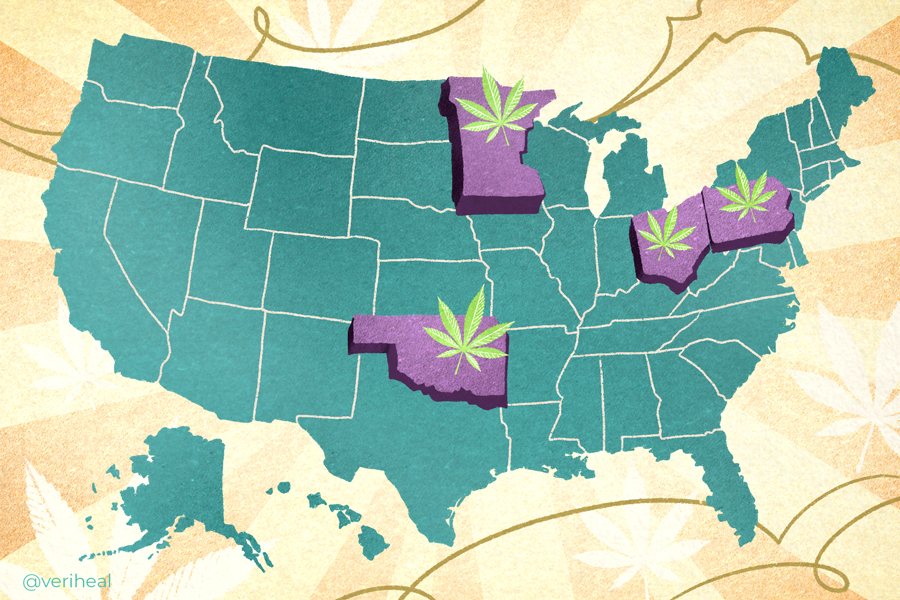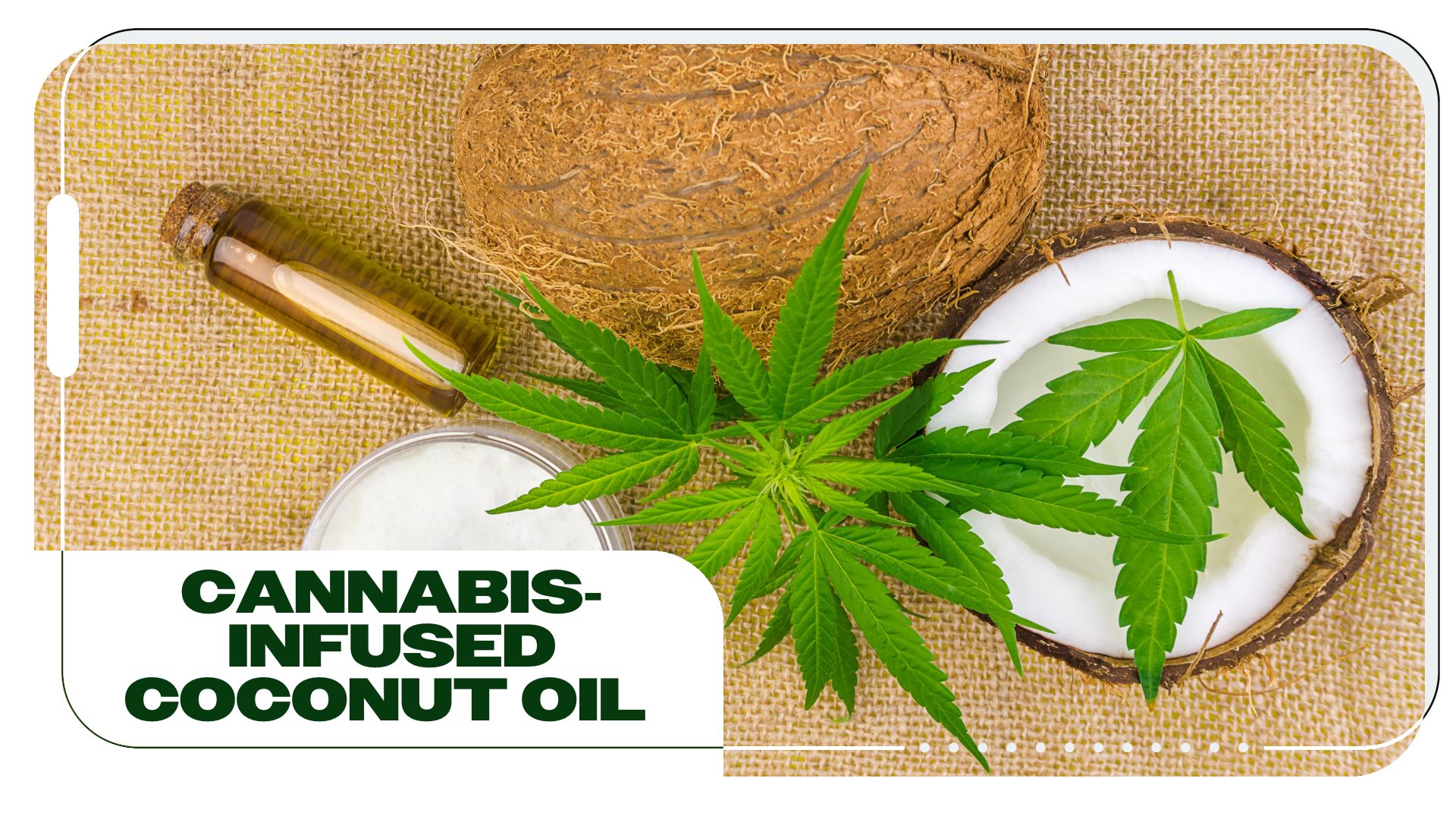Four U.S. states—Minnesota, Ohio, Oklahoma, and Pennsylvania—stand a good chance at legalizing recreational cannabis this year. There’s also a slim chance of efforts being successfully voted on in the Carolinas, Indiana, and New Hampshire.
Advocates are pushing harder for cannabis reform after achieving mixed results during last year’s midterm elections, which saw two victories (Missouri and Maryland) and three losses (Arkansas, North Dakota, and South Dakota).
Marijuana laws are rapidly evolving across all 50 U.S. states. However, the use and possession of cannabis remain illegal under federal law for any purpose as per the Controlled Substances Act of 1970 (CSA), which classifies cannabis as a Schedule I substance.
As of February 2023, 41 U.S. states, the District of Columbia, and Puerto Rico have enacted legal medical marijuana programs. Additionally, 23 U.S. states have decriminalized cannabis or enacted full adult-use programs.
Let’s take a closer look at the landscape of legal cannabis across the U.S.
Minnesota
During a hearing on Monday, Jan. 30, a Senate committee approved a bill to legalize cannabis in Minnesota. The Senate Jobs and Economic Development Committee passed the bill in a 5-3 vote. It was introduced by Sen. Lindsey Port (D) and covers 243 pages plus appendices.
“Prohibition of cannabis is a failed system that has not achieved the desired goals and has had incredible costs for our communities, especially for communities of color,” Port said at the hearing.
“We have an opportunity today to move forward in the process to undo some of the harm that has been done and to create a system of regulation that works for Minnesota consumers and businesses while ensuring an opportunity in this new market for communities that have been most affected by prohibition,” she added.
Minnesota’s cannabis legalization bill builds upon a 2021 House-passed bill from former Majority Leader Ryan Winkler (D). Some of the bill’s main components would permit adults aged 21 and older to legally possess 2 ounces of cannabis and grow a maximum of eight plants (four mature). No more than 2 ounces of cannabis could be gifted between adults without profit.
On top of this, Minnesota’s cannabis legalization bill would enable residents to legally possess a maximum of 2 ounces in a public place and 5 pounds in a private residence. Automatic expungement would be granted for previous cannabis records, and the bill would also promote social equity.
Ohio
The Ohio Marijuana Legalization Initiative (2023) was submitted by the Coalition to Regulate Marijuana like Alcohol via an initiated statute. It is currently being considered by the Ohio legislature and could be featured on the ballot as an indirectly initiated state statute on Nov. 7, 2023.
Based on Ohio’s initiated statute rules, the General Assembly must either pass or reject the law by May 3. If the law is enacted, a state agency called the Division of Cannabis Control would be established to regulate cannabis statewide. The law would legalize recreational cannabis for people aged 21+ and impose a 10% tax on point-of-sale purchases.
Why You Should Get Your Medical Marijuana Card
Veriheal has satisfied millions of patients nationwide by giving them access to these benefits
- Larger purchase limits
- Peace of mind
- Enhanced legal protection
- Access to higher potency strains
- Save up to 25% on cannabis purchases
- Skip the line at the dispensary
Adults would also be allowed to possess 2.5 ounces of cannabis and up to 15 grams of marijuana concentrates, whereas individuals could grow six marijuana plants at home or 12 per household. Additionally, Ohio’s cannabis legalization bill would impose a 10% cannabis tax rate on adult-use sales and earmark revenue to support “a cannabis social equity and jobs program” that provides “financial assistance and license application support to individuals most directly and adversely impacted by the enforcement of marijuana-related laws.”
Oklahoma
On March 7, 2023, voters in Oklahoma will cast a collective vote on State Question 820. If the initiative gathers enough support, it will progress to a state ballot vote in November. Oklahoma’s cannabis legalization initiative seeks to legalize the plant for recreational purposes across the state, where medical cannabis was legalized on Sept. 8, 2016, with the passing of House Bill 523.
On Oct. 18 of last year, Gov. Kevin Stitt (R) requested that a special election be held for State Question 820. The election is set to commence on March 7, 2023. If State Question 820 is approved, cannabis consumption and possession will be legalized for adults aged 21 and over.
Oklahoma’s cannabis legalization campaign is being led by lobbyists from the advocacy group Oklahomans for Sensible Marijuana Laws. Members of the group attempted to get the citizen-initiated measure featured on the ballot in 2022, but efforts were stunted by legal challenges and signature deadlines.
Should the bill progress to a ballot vote this November, the Oklahoma Medical Marijuana Authority would oversee business licensing and regulations. Cannabis sales would be taxed at 15%, and individuals could legally possess six mature plants and six seedlings.
People would be able to distribute, possess, transport, and distribute up to 1 ounce of marijuana, 8 grams of concentrate, and/or 8 grams or less of concentrated cannabis in marijuana-infused products. Previous marijuana-related convictions or sentences could potentially be expunged via a specific process.
UPDATE: Oklahomans rejected recreational cannabis legalization, with 62% of the state voting against the initiative.
Pennsylvania
Industry advocates are facing extreme pressure to legalize recreational cannabis in Pennsylvania following the success of the state’s medical cannabis industry, which is valued at $2 billion. Moreover, with legalization unfurling across the nearby states of New Jersey and New York, the pressure to follow in their footsteps is mounting.
State-wide polling data suggests that 60% of registered voters “think the use of recreational marijuana should be made legal.” House Bill 2050 Pennsylvania—which was reintroduced by Reps. Jake Wheatley and Dan Frankel—seeks to officially legalize and regulate recreational marijuana in Pennsylvania.
“By legalizing the use of cannabis and simultaneously expunging records and releasing non-violent drug offenders from prison, the Commonwealth can do its part to repair the damage of the last 40 years,” Wheatley said in a memo.
Aside from legalizing cannabis, the bill would also expunge previous cannabis conviction records. A 6% excise tax would be levied on cannabis retail sales for the first two years, followed by a 12% tax for the third and fourth years and a 19% tax for every consecutive year.
Pennsylvania’s legislature is divided between Democrats and Republicans, meaning the odds of a legalization initiative passing this year are somewhat restrained. Nonetheless, recreational cannabis legalization in Pennsylvania is endorsed by the governor and has vocal bipartisan support.
Author, Share & Comments







